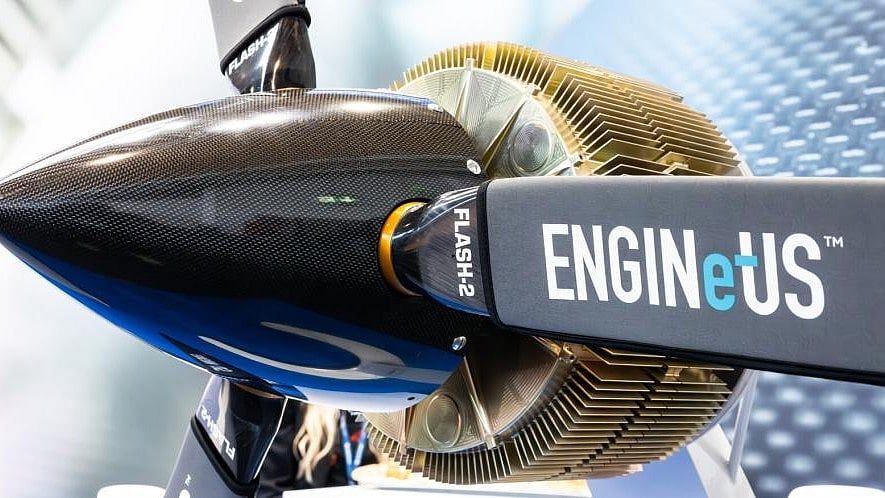
The French aerospace company Safran has achieved a groundbreaking feat in the world of aviation with the certification of its electric plane engine, the ENGIneUS 100, by the European Union Aviation Safety Agency (EASA). This certification is a pivotal advancement for 100% electric aviation and a significant step towards the decarbonization of the sector.
The journey to this milestone was marked by extensive testing. “The engine certification was obtained after a test campaign of 1,500 hours of engine certification tests and more than 100 hours of flight in real conditions,” stated Safran. This effort was the culmination of four years of collaborative work with EASA and approximately 5,300 hours of testing to establish specific airworthiness rules for electric propulsion and develop suitable validation methods.
The ENGEniUS 100, capable of delivering a maximum power of 125 kW, is designed to be versatile. It can be powered by various energy sources and installed on different aircraft types, accommodating up to 19 passengers. The 100% electric version, equipped with a battery, is ideal for light aircraft with 2 to 4 seats. This propulsion system is also suitable for vertical take-off and landing (VTOL) aircraft, particularly for short-distance applications like air taxis.
For regional aircrafts, the current limitations of battery capacity necessitate the use of a hybrid model. “The ENGIneUS 100 can be used in 100% electric mode, i.e. powered only by a battery, or by a hybrid architecture, where a thermal engine, a turbogenerator in this case, recharges a battery during certain phases of flight,” explained Bruno Bellanger, President of Safran Electrical & Power. Safran is also exploring fuel cells as a future energy source for aviation.
The market for electric motors is poised for significant growth, with expectations of representing several thousand units per year by 2030. To capitalize on this demand, Safran plans to mass produce the ENGINeUS starting next year, aiming to produce more than 1,000 motors annually by 2026.
Despite these advancements, the realization of long and medium-haul electric aircraft may require another decade. The primary challenge lies in battery technology. For instance, an A320 would need batteries equivalent to its weight to take off. Many experts believe that breakthroughs in battery technology will be essential to build fully electric medium or long-haul aircraft in the future.
In the meantime, hybrid engines are gaining popularity, especially with the use of more sustainable fuels like hydrogen. Safran continues to optimize its devices and technologies to contribute to a more sustainable aviation industry.